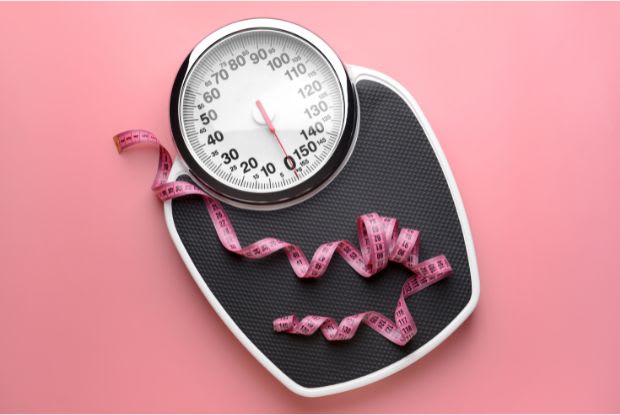Ozempic and Weight Loss: How it Works and What You Need to Know
Ozempic and Weight Loss: How it Works and What You Need to Know
Table of Contents
II. Can Ozempic Cause Weight Loss?
III. What is the Ozempic Dosage for Weight Loss?
IV. How Long Does it Take to Lose Weight with Ozempic?
Initially intended to treat type 2 diabetes and reduce the risks of heart disease, 1 Ozempic has recently gained popularity as a tool for weight loss. While Ozempic is not a miracle cure for obesity on its own, many people have found success in losing weight when combining Ozempic with diet and exercise changes.
In this article, we will explore how Ozempic works in the body, how it helps facilitate weight loss, the dosages typically used for weight loss, and what kind of weight loss timeline you can expect when taking Ozempic.
How Ozempic Works
The key ingredient in Ozempic is semaglutide, an engineered version of a natural hormone called glucagon-like peptide-1 (GLP-1). Semaglutide works similarly to GLP-1 in the body to help regulate blood sugar levels and control appetite, but it has been modified to last longer. 1
Normally, when a person eats, the digestive system releases GLP-1. This hormone then performs several important functions:
- It signals the pancreas to produce more insulin, which helps cells absorb excess sugar from the bloodstream. This helps prevent blood sugar spikes after meals.
- It reduces the amount of sugar produced by the liver between meals. This also helps maintain stable blood sugar levels.
- It creates a feeling of fullness and slows stomach emptying. This aids in portion control and prevents blood sugar spikes. 1
Ozempic utilizes semaglutide to mimic these effects and provide better blood sugar control and appetite regulation for people with diabetes or weight issues. 1 The same active ingredient is also found in other GLP-1 receptor agonists like Wegovy and Rybelsus. 2
Can Ozempic Cause Weight Loss?

While not officially approved for weight loss, Ozempic has been associated with weight loss in many people. This is likely related to Ozempic’s mechanism of action.
Ozempic contains the active ingredient semaglutide, which belongs to a class of medications called GLP-1 receptor agonists. These drugs mimic the effects of GLP-1, an appetite-reducing hormone released after eating that signals the pancreas to produce insulin and promotes feelings of fullness. 1
By activating GLP-1 receptors in the body, Ozempic suppresses appetite, leading to decreased food consumption and potential weight loss for some users. 1 Clinical trials have confirmed this connection between semaglutide and weight loss, especially at higher doses.
In a 68-week study of nearly 2,000 overweight or obese adults, those who received semaglutide at a dose of 2.4 mg lost an average of 14.9% of their body weight compared to just 2.4% in the placebo group. 3
It's important to note that the dosage used in this study was 2.4 mg, 3 while the maximum Ozempic dosage is 2 mg. 1 A higher dose of semaglutide medication, Wegovy, is now available specifically for chronic weight management at doses up to 2.4 mg. 4
However, while Wegovy at the 2.4 mg dose may result in greater weight loss, Ozempic, at its lower approved dosages, can also promote modest but meaningful weight reduction in many patients.
What is the Ozempic Dosage for Weight Loss?
Ozempic has been shown to help with weight loss at varying doses. Generally, higher doses of Ozempic correlate with greater weight loss for most people.
- 5 mg per week: Clinical trials have shown that individuals taking 0.5 mg of Ozempic experienced an average weight loss of 8.2 pounds over a span of 30 weeks. 5
- 1 mg per week: Studies show that individuals taking 1 mg of Ozempic per week for 40 weeks achieved an average weight loss of approximately 13.2 pounds. 6
- 2 mg per week : Individuals receiving a weekly dosage of 2 mg of Ozempic over 40 weeks experienced an average weight loss of 15.2 pounds. 6
It's important to note that the ideal dosage for weight loss can vary from person to person. While some individuals may experience weight loss benefits at a 1 mg dose, others may require a higher dosage of 2 mg to experience similar results. 1
In general, it's best to take the lowest dose that provides weight loss benefits. If 1 mg of Ozempic leads to your target weight loss and blood sugar control, there's no need to increase it to 2 mg. Sticking with the lowest effective dose helps minimize side effects. 1
How Long Does it Take to Lose Weight with Ozempic?

The timeline for weight loss on Ozempic varies from person to person and depends largely on finding the most effective dosage. When starting Ozempic, the prescribed dose is gradually titrated up over the course of several months. This slow increase allows the body to adjust to the medication and minimizes adverse effects. 1
- Month 1: You will inject 0.25 mg once weekly for four weeks. This low dose helps your body get accustomed to Ozempic.
- Month 2: You will inject 0.5 mg once weekly for four weeks.
- Month 3: If your blood sugar levels are still high, your doctor will increase your prescription to 1 mg once weekly.
- Month 4: If the 1 mg dose is ineffective at controlling your blood sugar levels, your doctor will increase your dose to 2 mg once weekly. 1
In summary, it can take three to four months of gradually increasing your Ozempic dose to reach the level that leads to consistent, significant weight loss for most people. However, some individuals may show steady weight loss at lower doses. The time it takes depends on finding the dose that is most effective for regulating your blood sugar and weight.
Conclusion
If you have been making positive lifestyle changes and are still finding it hard to lose weight, it may be worthwhile to talk to your doctor about whether Ozempic can help. This medication, when combined with a healthy diet and exercise, may help boost your weight loss efforts.
While Ozempic is not a magic solution, studies have shown it can be an effective tool for some people struggling with obesity or excess weight. By working with your doctor, you can determine if Ozempic is right for you.
References
- FDA Ozempic
- FDA Medications containing semaglutide
- Wilding, John P.H., Rachel L. Batterham, Salvatore Calanna, Melanie Davies, Luc F. Van Gaal, Ildiko Lingvay, Barbara M. McGowan, et al. Once-Weekly Semaglutide in Adults with Overweight or Obesity
- FDA Wegovy (semaglutide) injection, for subcutaneous use
- Sorli, Christopher, Shin-ichi Harashima, George M. Tsoukas, Jeffrey Unger, Julie Derving Karsbøl, Thomas Hansen, and Stephen C. Bain Efficacy and Safety of Once-Weekly Semaglutide Monotherapy versus Placebo in Patients with Type 2 Diabetes (Sustain 1): A Double-Blind, Randomised, Placebo-Controlled, Parallel-Group, Multinational, Multicentre Phase 3A Trial
- Frías, Juan P., Pernille Auerbach, Harpreet S. Bajaj, Yasushi Fukushima, Ildiko Lingvay, Stanislava Macura, Anette L. Søndergaard, Tsvetalina I. Tankova, Nikolaos Tentolouris, and John B. Buse Efficacy and Safety of Once-Weekly Semaglutide 2·0 Mg versus 1·0 Mg in Patients with Type 2 Diabetes (Sustain Forte): A Double-Blind, Randomised, Phase 3B Trial
